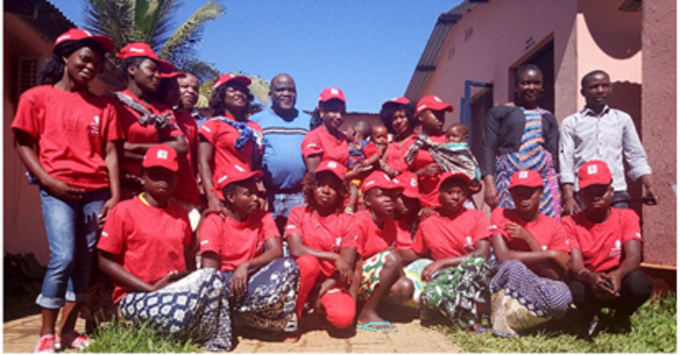Becoming Isabel, the mentor
Born in Quembo, a rural community of Morrumbala district in Zambézia province, Central Mozambique, Isabel Feliz, turned out to be a very smart and hard-working girl at school from very early age. This paid her to earn the respect from teachers and classmates who praised her for her participation in class and good scores in the tests.
At the age of 14, Isabel was forced to leave her family and move to the village of Morrumbala after her dream of attending and completing secondary school, which was already a great achievement, as many children in her community did not come to life due to the inexistence of secondary schools in Quembo and other nearby rural villages. In Morrumbala Village, the teenager settled in her grandmother's house, where living conditions were poor.
Despite the difficulties she faced at her grandmother's house, the teenager continued to amaze her school teachers with an exemplary behavior and good scores, which made it possible for her to successfully finish the grade 8.
However, Isabel's life went from happy to sad when in 2015 she met a young man with whomshe started a relationship. Isabel never knew how old her ex-boyfriend was, but she’s sure he was much older than her.
Shortly after dating, the Isabel found herself engaged in early marriage, unaware of family planning methods, and eventually became pregnant. “When I started dating elder Afonso, I didn't know anything about what to do to prevent pregnancy, so I got pregnant as soon as we started to live together,”said Isabel. She added: “I didn't even know how to use a condom, neither its importance”.
Being pregnant at an early age brought social consequences to the life of the girl who became a victim of discrimination at school. "I got sick. Once I reached the school, my colleagues would laugh at me for being pregnant, this situation made me very feel embarrassed,” says Isabel. “I barely had food to eat because and my family stopped supporting me because they thought I was already married, but my boyfriend had already left me”.
With a one-month-old baby, Isabel was forced to return to her Quembo community without her long-awaited 12th grade certificate. But her life still had a twist.
Fortunately, in 2018 while participating in a quick gender analysis process, Isabel was selected to be a “tô na boa” mentor in the Unguni project. From this point on, the young mother began to receive sexual and reproductive health training. “I now know that teenagers can date, but it is better to leave sex for later or adhere to contraception, use condoms and visit the Teen and Youth Friendly Services (SAAJ)”
Currently 18 years old, Isabel uses the knowledge gained from the Ungumi project and her experience to teach and raise awareness among other adolescents and young people in her community about the importance of not engaging in sex before the age of 18 and the importance of using contraceptive methods to prevent unwanted pregnancy and using a condom to prevent sexually transmitted infections and HIV / AIDS with the following message: “I suffered a lot from getting married and getting pregnant early. We have to know that starting menstruation does not mean being an adult to get married; premature marriages are very dangerous for the lives of children and adolescents. We end up getting pregnant and often our partners run away.”
From a teenager who had no information on contraceptive methods and disease prevention, Isabel has become a leader in conveying sexual and reproductive health messages in her community and has gained the trust of many teens seeking counseling. Isabel also has the support of the community leader and the bridesmaids of the initiation rites to spread their messages.
It should be noted that the Ungumi project has already trained 37 sexual and reproductive health mentors offering adolescent counseling services in 43 communities where the program operates since 2018.
The Ungumi project aims to reduce the vulnerability of adolescents and young people in and out of school through access to information on sexual and reproductive health, sexually transmitted diseases and HIV-AIDS, strengthening sexual and reproductive health skills and improving access to adolescent and gender-sensitive clinical services and counseling. The project is funded by the Government of Canada and implemented by Save the Children in Mozambique in some communities of Morrumbala, Milange and Derre districts in Zambezia province.
 Mozambique
Mozambique